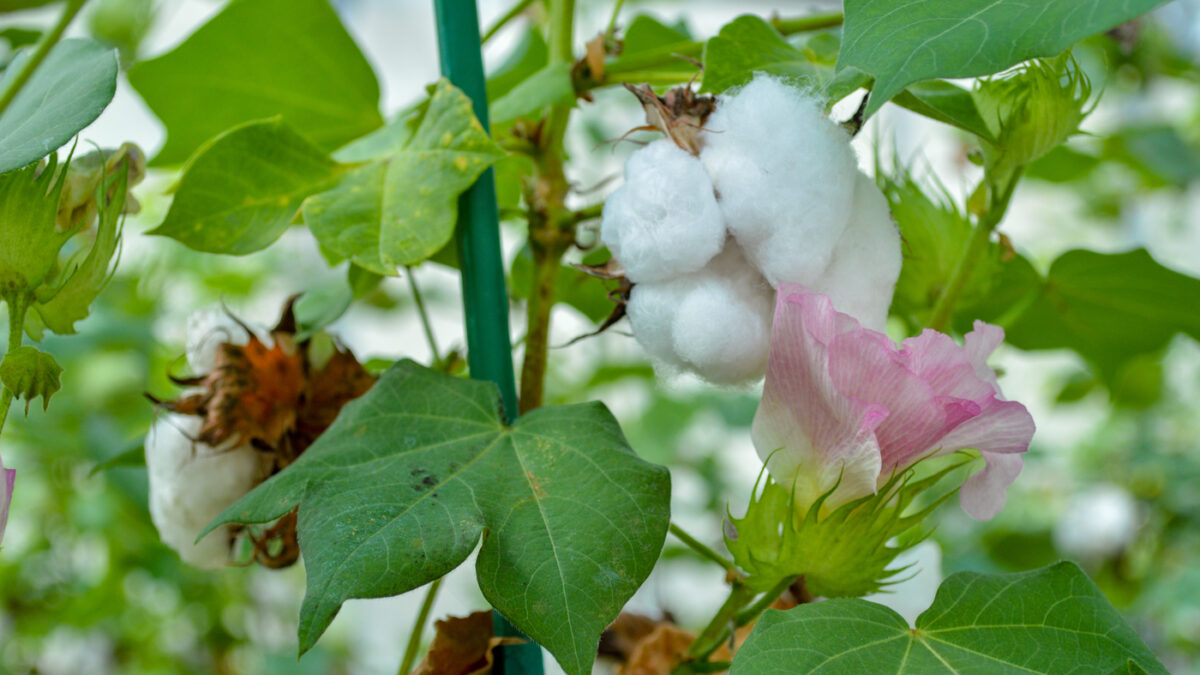You probably don’t think of cotton as food. There’s a good reason for that. Farmers primarily grow cotton for its fibers, which are transformed into T-shirts or sheets. Cotton plants do produce seeds, but these seeds are poisonous to humans. However, recently, the U.S. Department of Agriculture has given approval for a genetically engineered cotton variety where its seeds are safe to eat.
This revolutionary invention not only opens new market possibilities for cottonseed but also boosts cotton farming significantly. Cotton plants are known for producing copious amounts of seeds, with every pound of cotton fiber accompanied by 1.6 pounds of seed. These seeds, which are about the size of small peanuts, have the potential to be highly nutritious due to their high oil and protein content. Nevertheless, the seeds contain a toxin called gossypol, which makes them unfit for human consumption and toxic for most animals.
Traditionally, the surplus cottonseed is either used in the dairy industry or sent to oil mills for crushing and oil purification. The oil mills remove the gossypol, making the oil suitable for human consumption. However, Keerti Rathore, a researcher at Texas A&M University, wanted to expand the potential applications for cottonseed. After 23 years of dedicated research, Rathore successfully developed a genetically engineered cotton plant with seeds that are safe for human consumption.
By inserting a new piece of DNA into the cotton plant, Rathore was able to turn off the gene responsible for producing gossypol in the seeds, while leaving it active in the rest of the plant. The result? Cottonseeds that are nearly gossypol-free and completely safe to eat. Texas A&M University conducted extensive testing on the plants, both in greenhouses and small field plots. Researchers even tasted the roasted seeds, comparing their flavor to that of chickpeas.
With the recent green light from the U.S. Department of Agriculture, the new cotton variety can now be grown by anyone in the United States. However, before the seeds can be sold as food or feed, they still require approval from the Food and Drug Administration. Once approved, a multitude of possibilities emerge. Cottonseed can be utilized in animal feed for chickens or fish, and the meal can be incorporated into protein bars.
Rathore’s ultimate goal is to see this innovation making a difference in countries like India, where malnutrition is a prevalent issue and cotton production is significant. Cotton-producing countries, such as China and India, stand to benefit greatly from this technology. Discussions are already underway between Texas A&M University and seed companies to breed this new genetic trait into cotton varieties that will be sold to farmers in the United States and around the world.
Frequently Asked Questions
Q: Can dogs have cottonseed oil?
A: While the new genetically engineered cotton variety has safe-to-eat seeds, it is important to note that cottonseed oil is not specifically formulated for dogs. It is always best to consult with a veterinarian before introducing any new food or ingredient into your dog’s diet.
Q: What are the potential benefits of cottonseed oil for humans?
A: Cottonseed oil is a rich source of antioxidants and contains high levels of vitamin E, which is beneficial for heart health and skin. It is also known for its mild flavor and high smoke point, making it suitable for various cooking methods.
Q: Is cottonseed oil suitable for individuals with allergies?
A: Individuals with allergies should exercise caution when consuming cottonseed oil, as it may cause allergic reactions in some cases. It is recommended to consult with a healthcare professional if you have any concerns.
Conclusion
The development of a genetically engineered cotton variety with safe-to-eat seeds is an exciting breakthrough for both the cotton industry and nutrition. With potential applications in food production and animal feed, this innovation has the power to make a positive impact on global nutrition, particularly in countries where malnutrition is prevalent. As the industry continues to explore the possibilities, the future of cottonseed oil looks promising. For more information about Pawsoha, visit Pawsoha.
